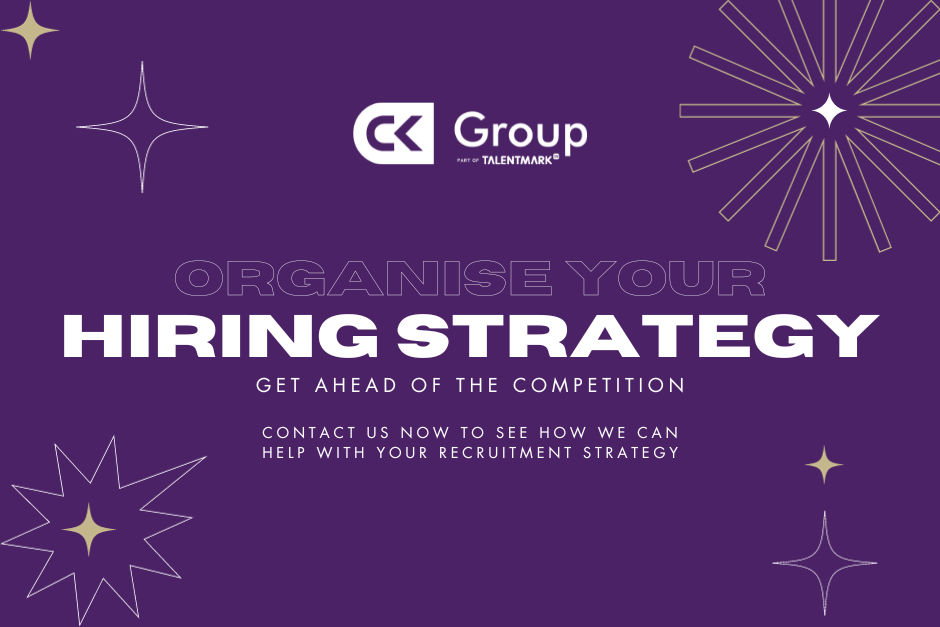Start the year well with new hires! In the rapidly advancing field of Life Sciences, Chemicals, Engineering and Clinical Research, staying ahead requires not only pioneering research and innovation but also a workforce equipped with diverse skills and expertise. As the industry evolves, so do the challenges and opportunities in attracting top talent.
Understanding the current market:
It has been evident that 2023 has been full of economic uncertainty, this has had a knock-on effect for recruitment – making it a difficult time for people looking for work and for those hiring staff. The market is constantly changing and growing; through breakthrough discoveries and technological advancements, the types of jobs and skills in demand ever evolving.
This growth comes with a heightened demand for skilled professionals across various disciplines such as molecular biology, bioinformatics, clinical research, and regulatory affairs. As companies strive to stay competitive, a strategic and well-organised recruitment strategy becomes imperative.
5 key considerations for a strategic hiring approach:
1. Identify skills gaps:
Before diving into the hiring process, there must be a comprehensive assessment of the current employee’s skills and competencies. Identifying skills gaps allows for targeted recruitment to fill these and ensure that the team is well-equipped to tackle all challenges. A great way to cover skills gaps that arise, is by hiring a contractor on a temporary basis!
2. Invest in professional development and soft skills:
The rapidly evolving nature of the Life Science, Chemical, Engineering and Clinical Research markets requires a commitment to continuous learning. Opportunities to take on people with new skills will always arise, by keeping up to date with the latest advancements, you can pre-empt these needs. It is also important to remember, that while technical expertise is crucial, soft skills such as communication, collaboration and adaptability are equally important.
3. Embrace diversity, equality and inclusion:
The Life Science, Chemical, Engineering and Clinical Research sectors benefit immensely from diverse perspectives and backgrounds. Embracing diversity and inclusion in the hiring process not only creates a culture of innovation but also helps address problems from different angles. This includes promoting gender diversity, ethnic diversity, and ensuring an inclusive workplace for individuals with varying abilities – catering to everyone’s individual strengths.
4. Make the most of technology:
The integration of technology in the recruitment process can streamline and enhance the hiring strategy. Here at CK we have a database of over 250,000 candidates, with an extensive network of job seekers. In todays world, it is important to factor in all of the technologies available, in particular the use of social media platforms such as LinkedIn. Networking and building strategic partnerships can vastly increase your visibility in the community.
5. Utilise a specialist recruitment agency:
Many larger companies have the capacity for dedicated recruiters to be employed internally or for the function to be outsourced to a service provider. It is important to remember, that while recruitment agencies charge a fee, they are not always an expensive alternative. Choose the right consultancy for the right position and you have an ally who will take much of the hard work from you, be well networked with the right people and act as an ambassador for your organisation.
Consider cost against value. If you called thirty different recruiters you could probably find half of that number would agree to very low fees and you’d have an instant preferred supplier list to send a bulk email out to for every vacancy. Low cost and low maintenance, but you wouldn’t have the time to brief each of those companies on the detailed requirements of each role. The recruitment consultants will be working on a large number of vacancies in order to boost their salary and with companies offering low fees this could mean the level of attention given to your roles will likely be low priority for them. Remember, that consultant is the first point of contact on behalf of your company with potential candidates.
A good recruiter should be able to advise you on organisations to speak to for areas in which they aren’t specialists. If you view your recruiter as a business partner they will view you in the same way. If you have a small list of trusted suppliers you’ll have the time to properly brief them with the full details of positions, background to roles, the personality required to fit well with the team and they’ll be able to offer advice upon the pool of candidates available. Once armed with that information they can begin the search process, speak to candidates with a sense of conviction and supply you with a shortlist of highly targeted applicants. It’s useful at this point to plan timelines, agree dates up front for CV submission, management review and interviews and you will have that person on board sooner than if each stage in the process was managed ad-hoc.
The success of any company centres on the ability to attract, retain and develop top-tier talent. A strategic hiring approach that addresses skill gaps, embraces diversity, adapts to industry trends and invests in professional development is crucial for growth and innovation. By staying informed on the ever-evolving landscape and adopting a proactive hiring strategy, you can position you will build a skilled workforce and successful organisation.
You may also like to read:
5 Insights into the Current STEM Job Market in the UK
